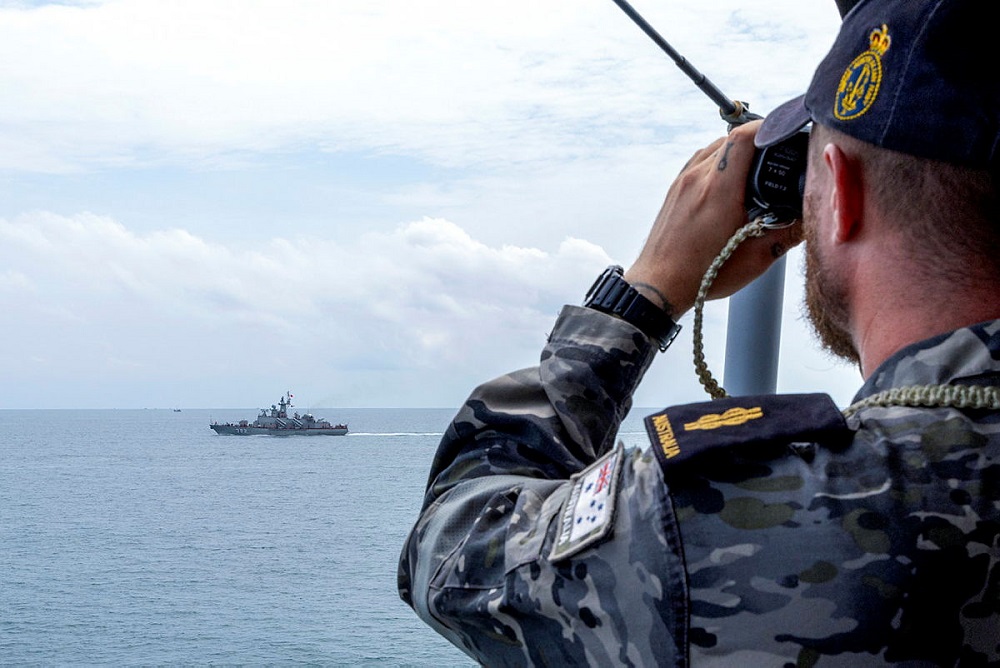
War in the Indo-Pacific is a real possibility. Increased competition, a growing trust deficit between global and regional powers and potential miscalculations heighten the danger. There needs to be a more engaged Australian discussion on conflict-escalation risks and how they might be managed.
Today I examine these issues in a new ASPI special report: Escalation Risks in the Indo-Pacific: A review for practitioners.
Policymakers and leaders need to understand escalation risks as they manage Australia’s relationship with the US, China, North Korea and Australia’s key regional defence partners over coming decades. In rhetoric and in action, Australia also needs to be attentive to how the acquisition and employment of our own new capabilities—strike missiles, evolving cyber capabilities and nuclear-propelled submarines—affect strategic stability dynamics in a fast-changing world.
This report addresses key priorities for the Australian Government. Australian ministers and senior officials have consistently called for governments across the region to use their agency to shape great-power dynamics, including supporting the development of so-called ‘guardrails’ to manage strategic competition between China and the US.
The Russian invasion of Ukraine has heightened concern about escalation risks in general terms. While there are many important lessons to be learned from that conflict, it’s essential that similar concerns are understood by Australian policy- and decision-makers as they relate to our key partners and our geography.
The first and principal aim of the report is to provide a review and discussion of various escalation risks in the Indo-Pacific. This is a complex issue which can be approached from multiple directions, drawing on a vast and rich literature which can help us think about the challenges. But for the historical reasons—among them that Australia has not had to think too hard about crisis management and escalation risks in recent decades—much muscle memory has been lost.
I argue against a rosy view of strategic stability in Australia’s region and suggest there are four main reasons we should remain concerned that crises and escalation pathways could be very difficult to control. These are: the ambiguous nature of maritime capabilities, novel technologies, unknowns in the nuclear balance and simple human frailty.
There is no reason for complacency. Taken together, these factors mean that there are all-too-imaginable possibilities for inadvertent and accidental escalation around flashpoints like the Korean peninsula, Taiwan, and in the East and South China Seas. Moreover, the maritime nature of the Western Pacific as a military theatre, combined with emerging technologies like hypersonics, means that decision makers could face very strong pressures toward pre-emption in a crisis. Put more simply, the fear-driven pressure to ‘shoot first’ could be very strong and very dangerous.
The report also identifies policy options for mitigating those concerns. Australia certainly cannot manage these risks alone, and we shouldn’t exaggerate Australian influence over the various factors influencing strategic stability. Nonetheless, the potential consequences are so serious that significant regional players, Australia included, cannot be bystanders. These are not just issues for the US and China alone. Indeed, there is a history of Australia playing a constructive role in this area.
Accordingly, the report makes three recommendations. First, Australian policy makers should support the establishment of appropriate crisis-management mechanisms. Second, Australia should continue and improve crisis exercises, in which national decision-makers should participate. Thirdly, it is important that there is continued investment in understanding escalation thresholds.
It’s important to be up front that my emphasis in this report is on Australian and allied capabilities and concepts. To borrow some military jargon, the report is focused on ‘blue’ (one’s own side) and not on ‘red’ (potential adversaries). I encourage further research and discussion about the escalatory implications of what our potential adversaries are doing. Conflict and contest are always two-sided (or many-sided) affairs, and the actions we take—even in combination and coordination with allies and partners—can’t determine outcomes on their own.
Moreover, the risks discussed here can never be eliminated. If deterrence is to be a significant part of the answer to our security challenges over coming decades, then the management of escalation risks will be an ongoing imperative.

